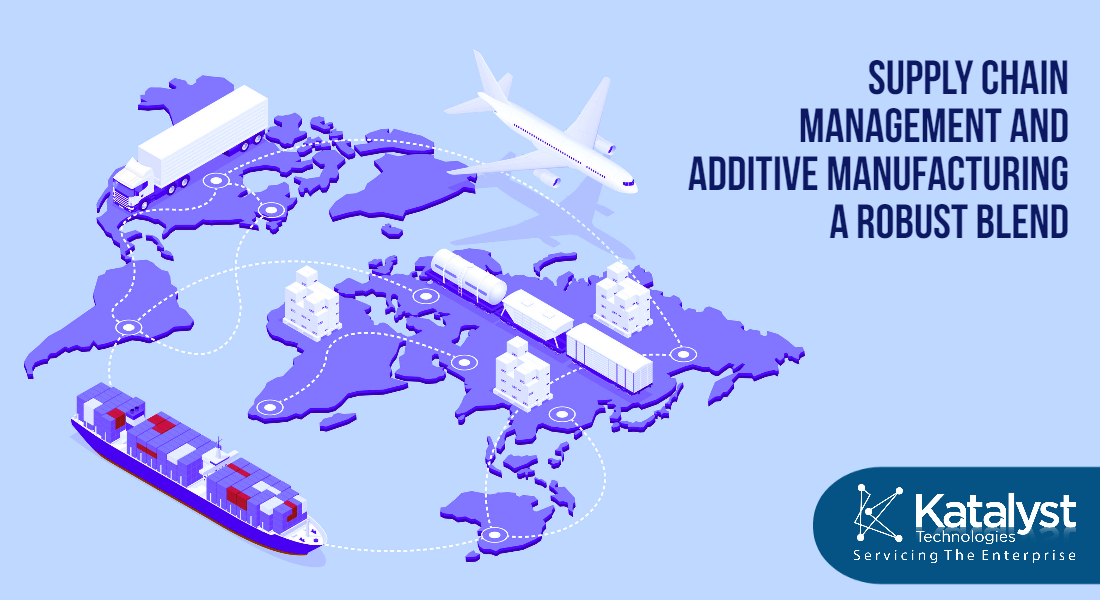Latest Manufacturing Trends Businesses Should Incorporate for Enhanced Efficiency
As the
fourth industrial revolution is on the verge, manufacturing companies have
started preparing themselves for the upcoming business model driven by digital
technologies. The emergence of disruptive technologies like AI, IoT, Robotics,
3D printing, nanotechnology, and VR will reshape the production, consumption,
and logistic systems.
 |
| Latest Manufacturing Trends Businesses Should Incorporate for Enhanced Efficiency |
How do you think can you handle the profound shift
across the manufacturing industry?
Have you analyzed the width and speed with which these
technologies will affect the business models?
How can you achieve production process optimization
for aligned outcomes?
No pressure
there!
Let's begin by examining the future trends that
manufacturing businesses must focus on to sustain growth.
Predictive Maintenance: A
proactive environment is essential to optimize the performance of equipment and
reduce their rate of deterioration based on systematic engineering data.
Studies reveal that firms lose $ 50 billion annually on account of unplanned
downtime. According to the McKinsey Global Institute, downtime can be reduced
by 50 percent when real-time data is utilized for prediction and prevention.
Rolls Royce
is relying on miniature robots called nanobots for detecting errors and
repairing the components before breakdown. Thus, it is imperative to deploy technologies
like IoT and bots to use performance data for predictive maintenance.
Blockchain: Blockchain has the potential of
transforming the manufacturing
process. Because of inherent transparency, Blockchain technologies offer a
highly secure way of refining the data management process and bringing more
visibility and accountability in the supply chains globally. According to
Forbes, Blockchain can have a positive impact on the overall manufacturing
ecosystem by enabling contract and payment security, asset tracking, and
transaction reporting with supply chain partners.
According to a research by IDC, by 2021, 20 percent of these companies will rely on
embedded intelligence, using the Internet of Things and the Blockchain to
automate processes and increase execution times by up to 25 percent.
AI
Revolution: Artificial Intelligence has facilitated industrial automation, thus
restructuring manufacturing capabilities. The AI-powered data analytics and
algorithms infuse agility in the manufacturing process by making them aware of
the emerging faults, deviations, abnormalities, and errors. AI supports the
engineering process by capturing and analyzing performance and real-time
environmental data from the field.
XaaS: A model-driven by on-demand
services and sharing economy, Everything-as-a-Service (XaaS) is a service-based
model that provides solutions to the companies on subscription rather than the
traditional method of licensing. XaaS covers Saas (Software as a Service), PaaS
(Platform as a Service) and IaaS (Infrastructure as a Service) under its ambit.
The models allow manufacturers to adopt a service-oriented approach while
building relationships with customers for viable growth.
Moving
ahead, Manufacturing-as-a-Service is helping manufacturers to leverage the
shared network of infrastructure that creates an impressive impact on cost
curves, thus helping businesses to improve their bottom line.
Augmented and Virtual Reality: AR and VR
offer limitless possibilities to the industry for making manufacturing process
efficient through optimal designs and intelligent operations. AR and VR enable
the users to have a look at and interact with the virtual world from all
angles. The design engineers are relying on AR and VR technologies to create
and optimize visual representations of shapes, designs, and colors in advance
before prototyping. The production facilities are using AR for simulating the
manufacturing process to analyze the overlay of machines and movement of
material to remove every possibility of defect.
Robotics:
Robots are ruling the heart of manufacturing and engineering systems by
delivering efficiency across the production process. The density of robots
worldwide is accelerating as they are collaborating with human workers at the
workplace, leading to speedy operations with zero errors. Robots are
programmable for continuous production on the assembly lines, thus helping
firms to stay competitive with cost leadership. It is interesting to note that
robots are even contributing to green manufacturing as they don't require
climate control or lighting, and create cleaner spaces.
Machine Learning: Machine learning employs
AI to enhance the capability of the systems to learn automatically without
human intervention and improve from experience without being overtly
programmed. According to Forbes, Machine Learning has a strong bearing on every phase
of production. Right from improving product quality, manufacture scheduling,
downtime prevention, predictive maintenance, quality testing, defect detection,
sustainable and predictive analytics, Machine Learning is everywhere. Machine
Learning has become a pioneer in transforming the manufacturing process.
Conclusion
As evident,
these cutting-edge, disruptive technologies are highly impactful in offering a
competitive edge to the companies during the fourth industrial revolution.
Do you see where we are going with this?
If you seek
to empower your manufacturing process with the leading enabling technologies,
this is the right time. Contact domain experts at Katalyst Technologies for
advanced manufacturing and engineering solutions and enjoy the breakneck pace
of development. Contact at https://katalysttech.com/connect/


